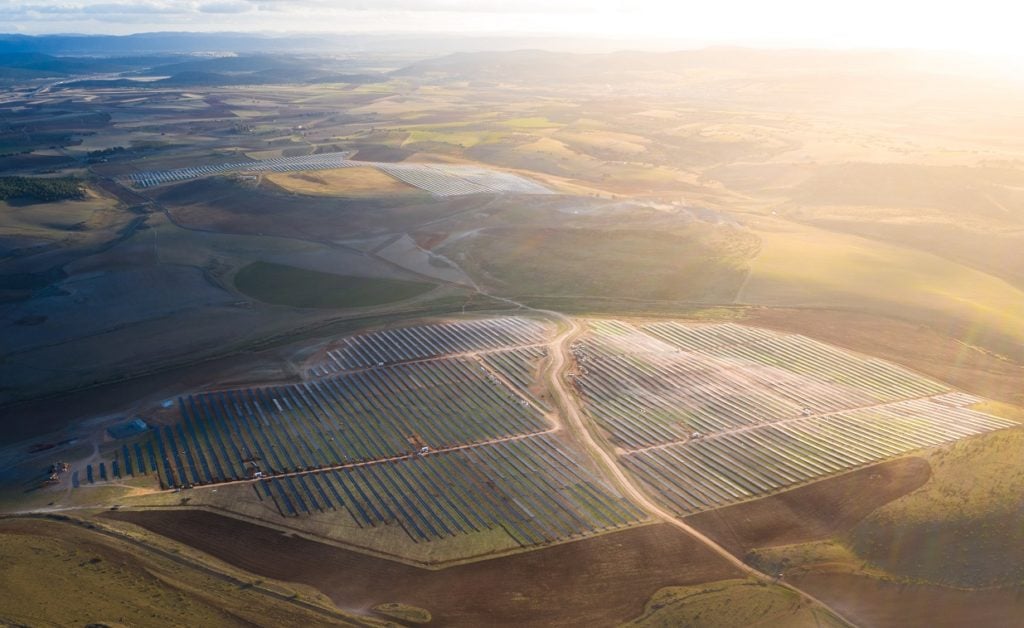
It will be 10 times more expensive to operate gas-fired power plants in Europe than to build new Solar PV capacity in the coming years, according to research by Rystad Energy.
High gas prices, market challenges and the falling cost of renewables all indicate a shift away from gas as a main source of European electricity in the medium to long-term, the research firm said.
Unlock unlimited access for 12 whole months of distinctive global analysis
Photovoltaics International is now included.
- Regular insight and analysis of the industry’s biggest developments
- In-depth interviews with the industry’s leading figures
- Unlimited digital access to the PV Tech Power journal catalogue
- Unlimited digital access to the Photovoltaics International journal catalogue
- Access to more than 1,000 technical papers
- Discounts on Solar Media’s portfolio of events, in-person and virtual
Its research, based on a comparison of the levelised cost of energy (LCOE) of gas with solar PV and wind, suggests that even once gas prices have lowered from their recent exceptional highs, gas will struggle to remain competitive in Europe’s power landscape.
These high prices have risen from an average of €46/MWh (US$45.8/MWh) in 2021 to €134/MWh (US$134/MWh) in 2022, a 189% jump. Nonetheless, gas generation output increased 4% in the first seven months of the year, in part because of a 100TWh drop in nuclear and hydroelectric generation in 2022. The situation is not expected to improve this winter, and gas will be needed to keep the lights on into 2023.
However, next year will see the return of nuclear generation plants – notably 30GW of capacity that EDF hopes to reintroduce after being offline for maintenance – and over 50GW of solar PV and wind capacity are in the pipeline. Even with gas prices expected to stabilise and put the LCOE of existing plants around €150/MWh by 2030, new solar PV facilities will have a LCOE around a third of this, reinforcing solar’s position as the cheapest form of power generation in much of the world
“Gas will continue to play an important role in the European energy mix for some time to come, but unless something fundamental shifts, then simple economics, as well as climate concerns, will tip the balance in favour of renewables” Carlos Diaz Torres, head of power at Rystad Energy said.
European countries have been accelerating the installation of renewable energy capacity in light of the recent price rises as the market tries to adjust to the loss of Russian gas. Indeed, it’s predicted that Europe will see “significant” increases in solar PV development following the Russian invasion of Ukraine.
Rystad forecasts that more than 100GW of renewable capacity could be developed if the money used to maintain gas-fired power generation was repurposed, and by 2028 capacity could reach 333GW using money that would otherwise have funded gas generation. This much capacity would be enough to generate 663TWh of electricity. These forecasts are only based upon repurposing money that would otherwise be used for gas, and build upon Rystad Energy’s base case forecast wherein over 2TW of solar and wind capacity and 520GW of utility scale batteries are installed by 2050.
Gas will still be needed to back up the intermittency of renewables generation, and until sufficient infrastructure is in place it is still vital to the European power mix, Rystad said. However, the firm said it makes sense for European power companies to fast-track the development of renewables in the face of gas’ uncertain and costly future. Whilst the European Commission has endorsed solar manufacturing and created energy security policies, economic and market forces could move things along more quickly.







